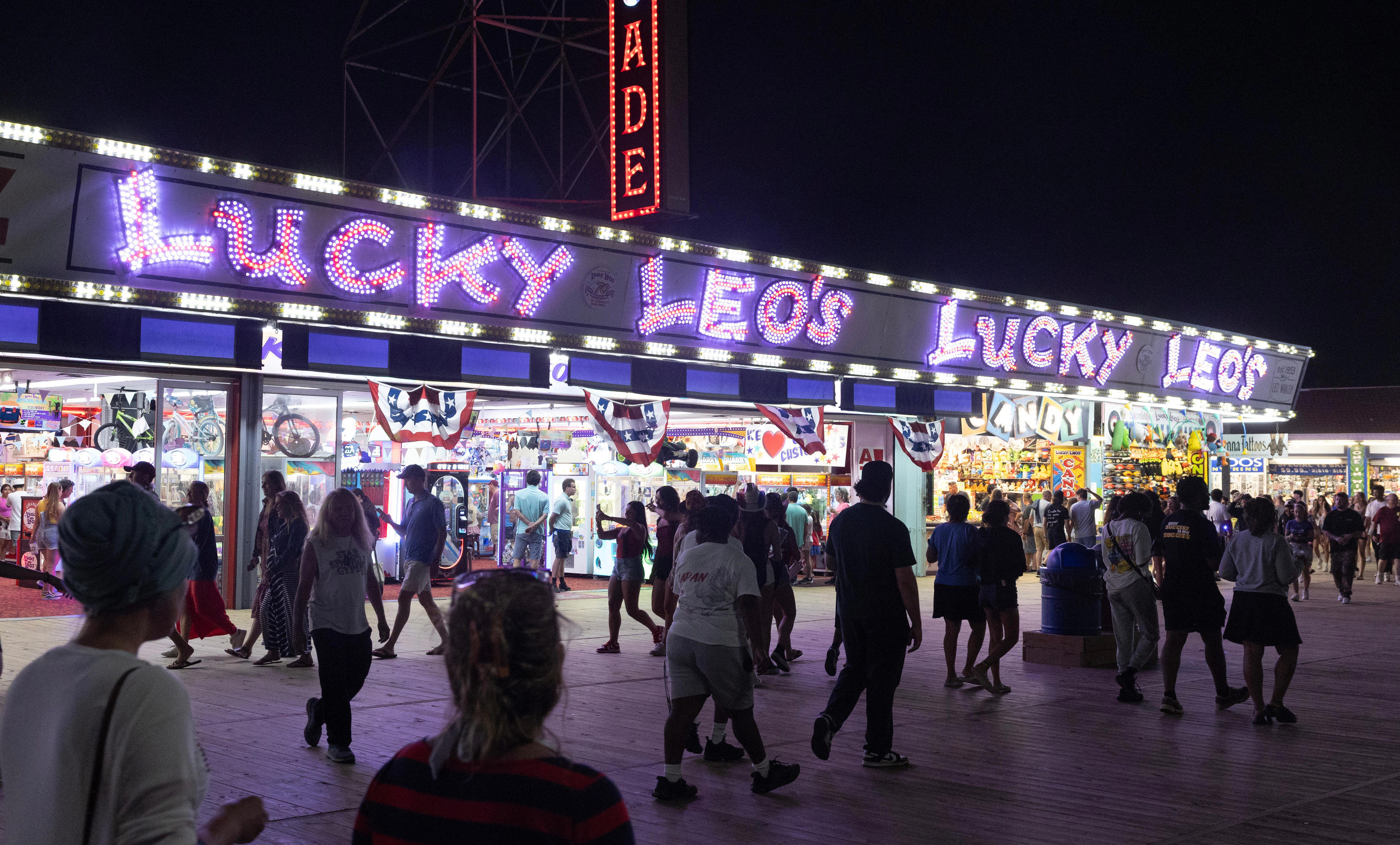Why 'Benny' Became the Jersey Shore's Dirtiest Word

The Origin of “Benny” and the Jersey Shore Culture
In the small coastal town of Spring Lake, a growing frustration was brewing among longtime residents. June B. Rozniak, who lived in the area, found herself increasingly annoyed by a group of outsiders renting a neighbor’s home for the summer. These visitors, she felt, were disrespecting what she considered a “lovely seaside community.” They partied during the day, filling the air with the scent of barbecue and creating a chaotic atmosphere. At night, they returned from bars well past 2 a.m., their loud laughter echoing through the streets.
This resentment culminated in a sharp opinion column published in the Asbury Park Press on August 18, 1974. In that piece, Rozniak coined the term “benny” to describe these out-of-towners, using it as a way to express her disdain. Though she didn’t invent the word, her article marked the first known use of “benny” in the newspaper, which had been around since the 1940s.
Rozniak described the behavior of these tourists as exaggerated and out of place. She wrote about how they would strip down to the bare minimum, wear hats, and carry drinks, all while trying to fit in but failing. Her column captured the essence of what many locals saw as an outsider culture, one that clashed with the values of the community.
The term “benny” became deeply embedded in the Jersey Shore culture, even before the rise of MTV’s “Jersey Shore” in the early 2000s. It has since become a symbol of the stereotypical summer tourist—often seen as fake-tanned, gold-chained, and loud. The term is so ingrained in local identity that even the minor league baseball team, the Jersey Shore BlueClaws, rebranded themselves as the “Locals” for a series against the “Bennys,” complete with a mascot that resembled a fanny-pack-wearing pigeon.
The Mystery Behind the Word “Benny”
Despite its widespread use, the origin of the word “benny” remains a mystery. Rozniak believed it referred to tourists seeking the “benefits” of the shore’s sunshine and saltwater. Some theories suggest it could be an acronym, possibly standing for Bayonne, Elizabeth, Newark, and New York, cities from which many tourists might have come. Others believe it relates to the $100 bills, or “Benjamins,” that some tourists flaunted. There are even stories about an umbrella rental stand named Benny’s, or the expensive Mercedes Benzes that clogged the Garden State Parkway.
However, none of these theories have been conclusively proven. The lack of clear origins adds to the intrigue surrounding the term. Even today, people like Rozniak, now 87, admit they don’t know where the word came from, though they acknowledge it wasn’t their invention.
Cultural Identity and Outsiders
The use of pejorative terms like “benny” and “shoobie” is not unique to the Jersey Shore. Throughout history, communities have created language to distinguish insiders from outsiders. Monmouth University provost Richard Veit, who teaches history and anthropology, explains that such terms help define cultural identity. “Using this kind of language is a culture working to define itself,” he said.
In other parts of the country, similar terms exist. For example, Long Island locals refer to New Yorkers coming to the Hamptons as “citiots,” while Southerners use “snowbirds” for those who move to Florida in the winter. However, what makes “benny” special is the enduring mystery around its meaning and origin.
Veit notes that New Jersey itself is a state of contrasts, with different regional cultures and identities. “New Jersey is one small, united state divided,” he said. “When folks at the Shore are calling someone a ‘benny,’ that person may only be coming from an hour or 90 minutes away.”
The Role of Tourism in the Jersey Shore Economy
While the term “benny” may be used to describe outsiders, it’s important to recognize that tourism is vital to the Jersey Shore economy. According to research from Tourism Economics, the industry generated $8.6 billion in Monmouth and Ocean counties alone last summer. This spending supports countless businesses, from restaurants to shops and entertainment venues.
Danielle Wolowitz, president of the Jersey Shore Chamber of Commerce, emphasizes the importance of tourists. “Tourism is the bread and butter of what a lot of businesses at the Shore rely on,” she said. “It’s really only for 90 or 120 days.”
Despite this, there have been tensions between locals and tourists over the years. Bumper stickers reading “Benny go home” appeared in the late 1970s, prompting officials to urge residents to welcome visitors instead. During Superstorm Sandy in 2012 and the height of the COVID-19 pandemic, the impact of reduced tourism was felt keenly, highlighting the economic dependence on summer visitors.
A Complex Relationship
While not every tourist is a “benny,” the term continues to reflect a complex relationship between locals and visitors. Some tourists are simply looking for a relaxing getaway, while others may be more disruptive. Rozniak’s distinction in 1974—that people became bennies when they started drinking and dressing inappropriately—captures this nuance.
Ultimately, the presence of tourists is essential to the Jersey Shore. Without them, the community would lose much of its vibrancy. As Labor Day approaches, the locals will once again enjoy the quiet of the beach, knowing that the “bennies” will soon be gone, leaving behind the familiar rhythm of life along the shore.
Post a Comment for "Why 'Benny' Became the Jersey Shore's Dirtiest Word"
Post a Comment